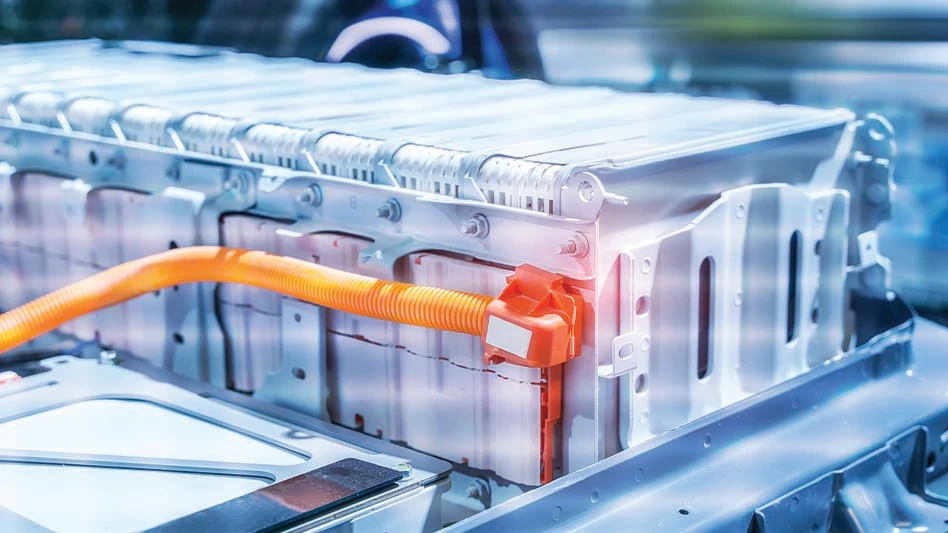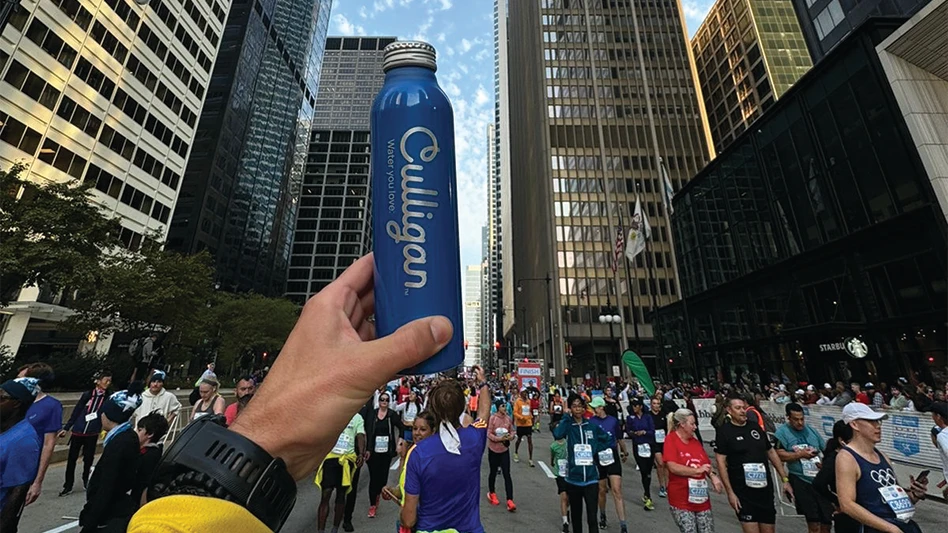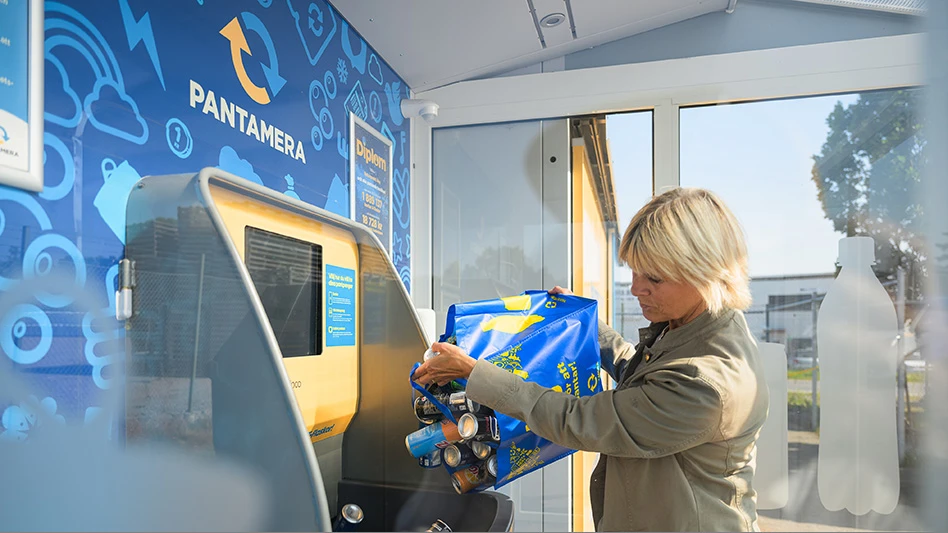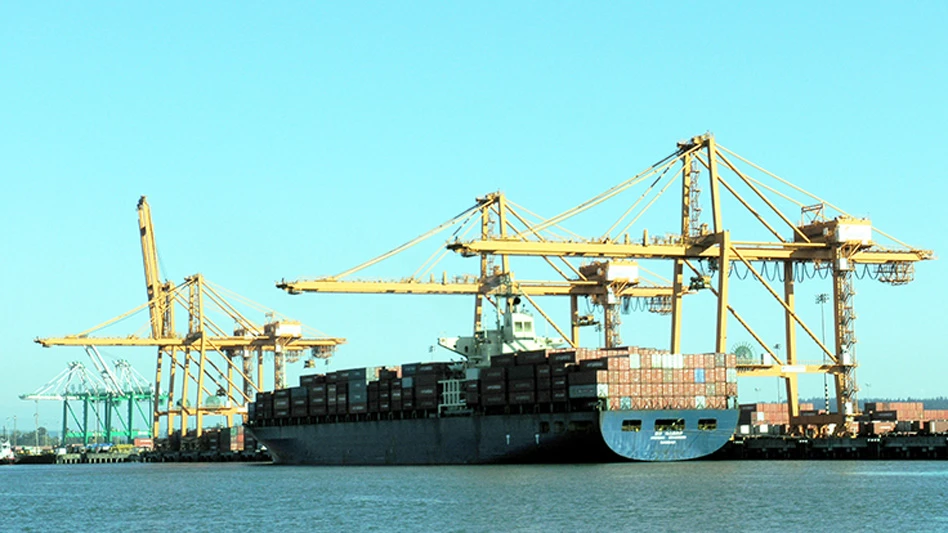
About three years ago, Kostas Ziogas wanted to invest in a new, growing industry. At that time, he recognized growth opportunities in a few sectors: computer software and hardware; bioengineering; and environmental—including plastics recycling.
Ziogas has been an entrepreneur in the European market for more than two decades, having been involved in trading and distributing virgin polymers. Since he was knowledgeable about the plastics market, he says it made sense for him to consider investing in a plastics recycling business.
When he was evaluating the plastics recycling industry, Ziogas says he noticed a gap. Plenty of companies were recycling high-density polyethylene (HDPE), polyethylene terephthalate (PET) and polypropylene (PP); however, far fewer companies had made investments to recycle low-density polyethylene (LDPE) and other postconsumer films.
“Evaluating the situation in the plastic recycling market, I realized a gap in the industry,” Ziogas says. “Everybody’s processing polypropylene, HDPE—the rigid material. And the market is saturated if we’re talking PET recycling. Everybody is doing this. I don’t want to process things which everybody can do because you will follow the market.”
So, he decided to take a risk and start a business that would recycle postconsumer LDPE packaging. In January 2018, Ziogas and a team of entrepreneurs officially established that company in Elin Pelin, Bulgaria, which they named Integra Plastics. Ziogas then took on the role of Integra Plastics’ sales and supplies director. He set a goal of recycling about 44,000 tons (40,000 metric tons) of postconsumer film per year.
Ziogas adds that he wanted the company to produce an end product that would be as close as possible to virgin materials; “a top-quality material, no matter the cost because this is what the market” demands, he says.
Pioneering investments
Ziogas partnered with European entrepreneurs Julian Belev and Angel Georgiev just before launching Integra. While neither Belev nor Georgiev have experience in plastics recycling, Ziogas says these shareholders are knowledgeable about related industries and the startup of new businesses. Both also have experience in operating plants, production and trading.
“From the moment we had the idea, they said let’s go ahead,” Ziogas says of his business partners Belev and Georgiev. “I’ve known them for many, many years. They are very reliable partners and serious businessmen coming from both the food business and bioethanol/chemical business. We have longtime experience doing business together and great trust. Trust in business is everything.”
To date, Ziogas says he and his partners at Integra have invested about $46 million (or 41.5 million euros) in the facility. He says, “We decided to invest our own private money and also use the banking system to provide us with the extra cash flow needed. Our business plan and our feasibilities studies also encourage the banks to trust our idea and support our endeavor.”
As of June, all the equipment had been installed at Integra’s Elin Pelin facility. The plant went through testing throughout the summer to ensure it could perform full-scale production beginning in the fall.
Currently, about 85 people work for Integra, with about 75 of those employees working in the production facility in Elin Pelin. The plant operates 24/7, using four six-hour shifts of 15 people, Ziogas says.
Although starting a business recycling postconsumer film involved risk, Ziogas says he has remained optimistic about pursuing the opportunity. He adds that he wants to be a pioneer in film recycling rather than follow the crowd and do what’s already been done.
“Of course, there is risk because we are tuning the machines at the moment,” Ziogas says. “It’s a prototype plant; there’s no such plant in Europe, the USA or the Far East like it. But no pain, no gain is what we say. This is the risk undertaken. As Integra, we don’t like to flow by the current. This is the kind of businessmen we are, and we are happy about this. It gives you business thrills.”
Quality equipment
Integra purchased a plot of land measuring 376,736 square feet (or 35,000 square meters) for its 183,000-square-foot (or 17,000-square-meter) facility that houses its production area and warehouse. However, figuring out the right equipment to use and the right procedures for processing postconsumer plastic film took time and testing.
“Processing flexible material is not easy,” Ziogas says. “We, along with our machinery suppliers, had to overcome many difficulties and actually even reinvent the way the materials should be processed. The only way to succeed in such an undertaking is to cooperate with leaders in the machinery market.”

Ziogas says he and his team partnered with several German and Austrian companies to build the plant’s processing lines. He adds that these equipment manufacturers helped Integra overcome some of the difficulties it encountered by offering customized solutions.
The facility features equipment from several European manufacturers, including Germany-based Tomra Sorting Recycling, Germany-based Stadler, Germany-based Herbold Meckesheim and Austria-based Erema, to name a few. Ziogas says he and his team prefer using European machinery over equipment produced in Asia for its durability and quality.
“My partners and myself believe cheap is expensive and expensive is cheap,” Ziogas says. “Equipment from Far East companies won’t last long. You pay less money, but the quality of the product produced will be less ... and the life of the machinery will be less; whereas, if you pay more, it’s expensive but you have top-quality products that attract big players to be your partners.”
Jürgen Priesters, vice president of circular economy at Tomra, says, “Integra’s wish was to build the most modern recycling plant in the world and produce a high-quality recycled material that closely matches virgin polymers. Currently, Integra is at the fine-tuning phase, and we are working closely with them to help ensure the plant’s success.”
Integra’s plastic recycling process starts with baled plastic scrap that is fed to a large shredder. Ziogas says plastic film comes from suppliers “all over Europe.”
He says, “We prefer the material to be baled up before it arrives to us for logistic purposes, but we can also accept it in bulk.”
The shredded material moves along more than 3,000 feet (or 1 kilometer) of conveyor belts. A magnet and screen remove unwanted materials, including metals. The material is then sorted by polyolefin type and color—transparent, blue, green and red—using the Tomra machines. After hot washing and drying, the shredded plastic, which is now cleaned of any remaining impurities, proceeds to additional Tomra units to be sorted by color and material before being forwarded for regranulation, where plastics are compressed, melted, filtered, degassed, homogenized and made into pellets.
The pellets are packed into 1-ton bags, ready for reuse in a wide range of applications.
At the facility, Integra produces customized resins, including different material grades and different colors.
“We are proud of our lines,” Ziogas says. “We literally get a waste and we transform it into something valuable. We are happy to state that the first results of our plant are far beyond our expectations, and we cannot wait to distribute our material to the market.”

Close to virgin quality
Ziogas says Integra’s goal is to produce a high-end recycled product with quality “as close as it can get to virgin material.”
The company aims to have its granules achieve 99.5 percent purity. He says early results from the summer have been good, and the company is expected to start commercial-scale operations by the middle or end of September.
“The first results correspond to granules that are close to the quality we expect to have,” he says, estimating that Integra will achieve its 99.5 percent target by the end of September.
Pioneering technology and processes to recycle film is exciting and different, but it comes with a cost, Ziogas says. “We are already at the tuning process for the last two months, and we expect this to last for another month or so,” he says as of mid-August. “There are two reasons for the responsible delay. There is no previous record of our technology, so our engineers need more time to process the data and proceed with optimizations. The second reason is our persistence with the high quality of our material.”
Ziogas says he plans to export almost all of Integra’s end products to companies in Europe. “Our target group is companies that can understand the high standards of our material and also want to keep up with the idea of the circular economy and the reduction in the production of new plastic each year, saving at the same time a serious amount of carbon dioxide emissions.”
Priesters says the Integra facility “is, for sure, recognized as a pioneer in processing postconsumer films.”
Ziogas adds that more manufacturers are integrating 30 to 40 percent of recycled granules in their final products, which will create demand for Integra’s product. However, Integra is still a new company, and Ziogas says its team is working to establish the company in the market and to teach companies how they can benefit from using recycled material.
“Even though it is too early to talk about our plant’s long-term future, we are big fans of what is becoming now a trend within Europe—the recycling of plastic,” Ziogas says. “The idea of applying in production recycled material starts making progress, and we are here to support it for many years to come.”
Get curated news on YOUR industry.
Enter your email to receive our newsletters.

Explore the Fall 2019 Plastics Recycling Issue
Check out more from this issue and find your next story to read.
Latest from Recycling Today
- Nucor expects slimmer profits in early 2025
- CP Group announces new senior vice president
- APR publishes Design Guide in French
- AmSty recorded first sales of PolyRenew Styrene in 2024
- PRE says EU’s plastic recycling industry at a breaking point
- Call2Recycle Canada, Staples Professional expand partnership
- Circular Services breaks ground on north Texas MRF
- Tariff uncertainty results in choppy nonferrous scrap flows





